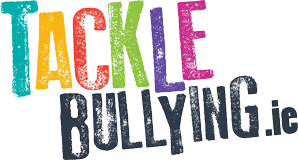Bullying and Racism
Communities should try to promote equality for everybody who is a part of it.
Our communities – which include schools, businesses, and governments – should play their part in acting as safeguards against bullying.
Our communities include people who come from diverse backgrounds; have different ethnicities; sexualities; gender identities; abilities and disabilities; beliefs; cultures; religions; and nationalities. The bullying of these individuals is akin to racism, and in extreme situations (whereby the Police are involved), can be considered as Hate Crimes.
Bullying can occur as a result of racist slurs; commentary; and hate in the media for diverse groups.
It is not entirely known for why people can get bullied as a result of their ethnicity, gender, or religion. However, sometimes there are news reports, politicians, celebrities, and other influential figures who depict certain ethnic and diverse groups (i.e. Traveller Community; Muslims; Transgender individuals) that are viewed as lazy and negative stereotypes.
Branding entire ethnic groups, diverse individuals, or practising members of a religious faith, based on past experiences or a political ideology in negative contexts, can lead to prejudice, discrimination and racism.
This – along with a lack of understanding about somebody else’s background or culture – can lead to bullying on the individual level. This should be prevented with every effort.
What to Do About It?
If you are experiencing bullying or cyberbullying as a result of your ethnicity, religion or sexuality, document it and report it.
- Block the bully on social media and report harmful content to the social networking site
- Tell a parent/ guardian about the bullying situation;
- Bring the situation to the attention of your school teacher/ principal/ guidance counsellor;
- Meet with a Cultural or Liaison Officer (e.g. LGBTQI+ Officer)
- Inform a religious representative: local priest, imam, rabbi etc.
- Report the incident as a hate crime at your nearest police station;
- Contact a relevant NGO (e.g. Pavee Point, Immigrant Council of Ireland etc.)
- It may be a case that you need to consider your anonymity when reporting such bullying.
You can explain to them that your anonymity is important before reporting the incident.
Many people choose to be anonymous when reporting a bullying/ cyberbullying incident in the fear of “getting caught” or “making it worse”.
But ultimately, bullying does not stop until you do something about it.
Religion and Culture
Often, many of us confuse people’s religious beliefs with their cultural differences.
People of different religions and faiths often express religious and cultural traditions, for example, a Muslim woman wearing a head scarf (called Hijab) or a Sikh man wearing a turban (also called Patka).
These religious and cultural expressions can sometimes act as triggers to bully, especially when an individual has been negatively informed about the traditions of religions and faiths.
Bullying in such contexts are violations of several Irish laws, such as the Employment Equality Acts 1998-2015, and a school’s Code of Behaviour.
